The author and publisher have provided this e-book to you for your personal use only.
You may not make this ebook publicly available in any way.
Copyright infringement is against the law.
If you believe the copy of this e-book you are reading infringes on the authors copyright, please notify the publisher at:
us.macmillanusa.com/piracy .
Three short sections of this book, in a slightly different form, were first presented as the commentaries
On Becoming an Old Programmer, My Virtual Company, and In Their Fifties on the National Public Radio program All Things Considered.
This book describes real people and events.
In many cases, however, names and identifying details have been changed, and events slightly arranged, to give a measure of privacy to the individuals involved.
CLOSE TO THE MACHINE.
Copyright 1997 by Ellen Ullman.
Introduction copyright 2012 by Jaron Lanier.
All rights reserved.
For information, address
Picador,
175 Fifth Avenue,
New York, N.Y. 10010.
www.picadorusa.com
www.twitter.com/picadorusa

www.facebook.com/picadorusa
Picador is a U.S. registered trademark and is used by Farrar, Straus and Giroux under license from Pan Books Limited.
For book club information, please visit www.facebook.com/picadorbookclubor e-mail marketing@picadorusa.com.
Design by Nancy J. Peters
eISBN: 978-1-250-02458-9
First eBook Edition : March 2012
Picador ISBN 978-1-250-00248-8
First published in the United States by City Lights Books
First Picador Edition: March 2012
THIS PIERCING BOOK RECORDS WHAT IT FELT LIKE when humans were first engulfed by artificial computation.
There are precious few opportunities to peer through digital noise. Digital experience becomes so baroque as to become virtually opaque. Close to the Machine presses Control+Z and undoes some of the filigree, peeling back time to expose clear origins.
When people are interested in twentieth-century music, they are likely to become fascinated with moments of origin, like when Robert Johnson approached the crossroads. It is hard to read the literature of the twentieth century without becoming curious about what Paris was like in the 1920s. In the same way, anyone immersed in social networking or any of the rest of life on the Internet at present might naturally be curious about what Silicon Valley was really like just before it all got so big and important.
We all know about the famous players, but what was the texture of experience on the ground? Seeing thatpurely is how we can see beyond the encompassing clichs that always blind people to the present.
Try to do this online and youll fall into a void. The Internet remembers its own digital traces, though less perfectly than is widely understood. As the digital sphere began to rise, the old world didnt know what was important enough to record in the emergent nerdosphere, and the Internet wasnt really there yet to start its own sort of obsessive quantity-oriented recording. So there is a lost lull from just before the storm. Its hard to get a fix on what computer culture was like in the years before it was networked and went pop. Yet that is where we must look if we are to find the fetal dragon, the fractal seed that would soon overwhelm the interstices between all recordable experiences.
For all the global roar of the Internets regard of the Internet, a plain account of living with computation is hard to come by. There are precious few.
Fred Brooks wrote a book called The Mythical Man-Month from the perspective of a manager of programmers back in 1975, which was the first book to be honest about what computers are really like, and what its like to cope with that. There have been a handful of other examples, but almost none from a personal perspective.
Awaiting your eyes is a remarkable document that is both the best account of the intimate experience of computation by a person, and a saved slice of historical memory, of that almost lost moment before everything went digitally nuts.
I remember being amazed when the first edition was published. It proved that at last there was a bridge between reality at large and the empire of nerds, which seemed nonreactive and immune to subjectivity, beauty, love, or the acknowledgment of fundamental frailty. Here was a computer nerd who could write. Beyond that, Ullman could write about computers and her true life within a unified narrative. No one had done it before, and no ones done it as deeply since.
To see clearly you have to have the access of an insider, but also be an outsider. You have to be right there and still have enough distance to see. Ullman had just the right mix of there and not there when she wrote this book. She was attached to Silicon Valley, but at a bit of distance, living in San Francisco. And she is a grown-up woman in a culture favoring youth, in a world where women programmers were all too rare.
Womens contributions to computing, a series of firsts, have mostly been erased from our collective memory. We might recall Ada Lovelace, who was the first to grasp and articulate the promise of a general-purpose computer. During World War II, it was six women who set by hand the thousands of switches on ENIAC, the first all-electronic digital computer. These women were called computers, a term that had been applied for centuries to the profession of tedious tabulation and calculation by hand.
Grace Hopper, a computer scientist and Naval officer, led a team of women who created the first modernprogramming language, as well as the compiler, a now indispensible tool that translates code to machine-readable bits.
I met Grace while she was alive, and she was one no-nonsense, tough broad. No one was ever going to mess with her. She coined the term bug, and if I were a computer bug, I would fix myself before Id face her.
After World War II, the men came home, took jobs, and the women were expected to forget how to code. Baby Boom nerds grew up in a world where code was a male thing. Baby Boom programmers grew up in a world where code was a boy-nerd thing. There were precious few girl-nerds in pre-Internet Silicon Valley.
The particular quality of male nerdiness might be described as a whiff of autism spectrum disorder. Not full-on communal Aspergers syndrome, but just a bite, as Ullman describes it in a scene with the ultra-nerd Brian. She asks him if hed like to listen to Palestrina or Beethoven. And Brian replies, Classical music is not yet in my data banks.
The autistic spectrum is somewhat correlated with men, and in a way, the nerd world is a world made by men for men. The nerd flavor of masculinity has overwhelmed the macho kind in real-life power dynamics, and therefore in popular culture.
What is nerdism like? There is a tendency to reject outward appearances, which has its kindnesses. There is a purpose of life in the nerd world, which is treating reality as code, and optimizing it. Life becomes a problem-solvingactivity, and the problem is some sort of lack of optimization. Of course this imperative breaks down on close examination, but they all do.

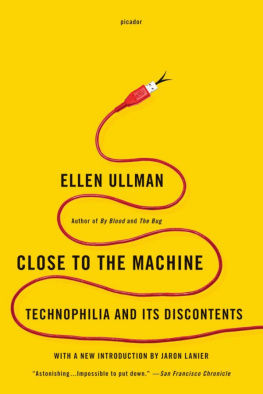


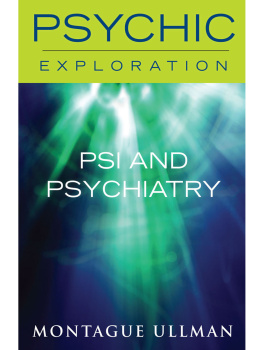
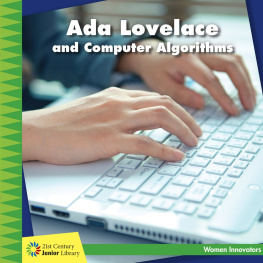
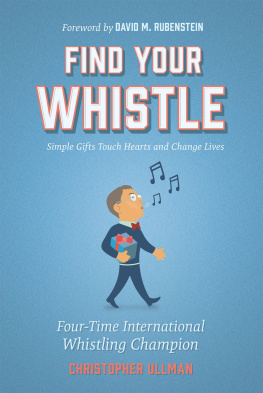
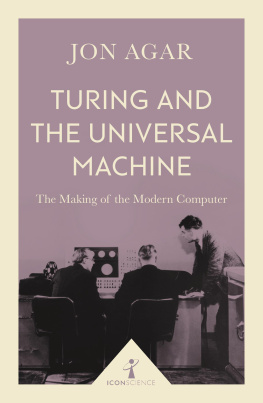
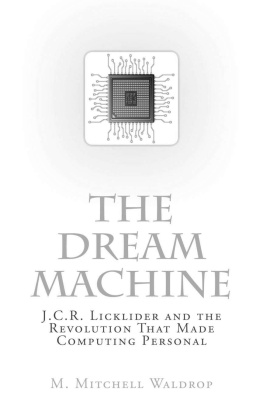
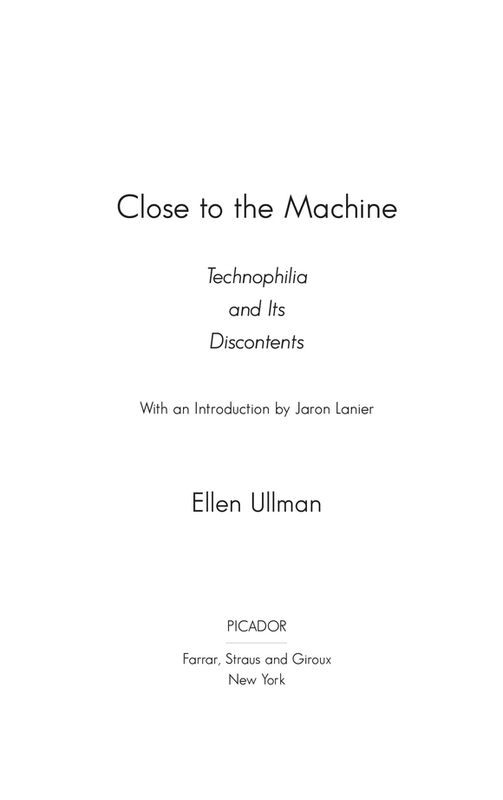
 www.facebook.com/picadorusa
www.facebook.com/picadorusa